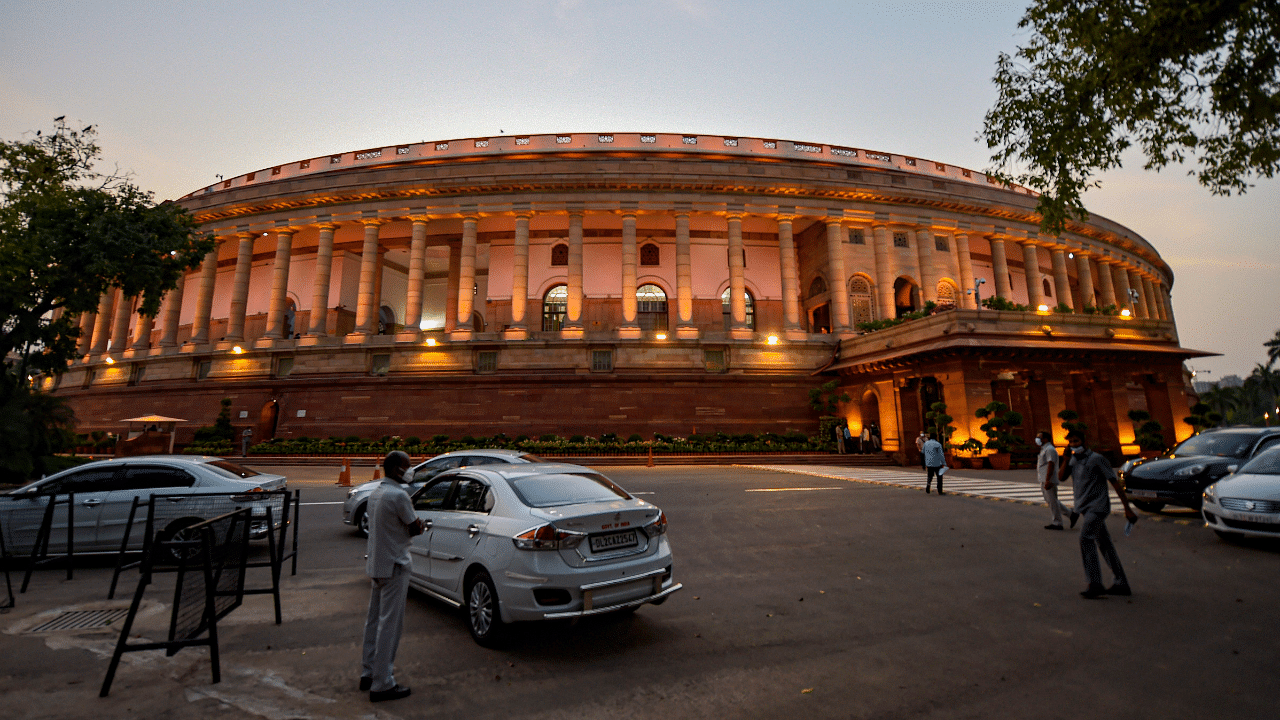
Meeting under the shadow of Covid-19, the monsoon session of Parliament got off to a stormy start with the opposition targeting the Modi government for scrapping the Question Hour and accusing it of resorting to “coercive federalism” while ushering in “so-called reforms” in the farm sector.
The session began on a sombre note with tributes to former President Pranab Mukherjee, sitting member H Vasanthakumar, Pandit Jasraj and former MPs who passed away during the inter-session period.
Sparks flew soon after as Parliamentary Affairs Minister Pralhad Joshi rose to move a Motion to do away with the Question Hour and Private Members’ Business during the truncated monsoon session.
Opposition leaders Adhir Ranjan Chowdhury, Gaurav Gogoi and Manish Tewari, Asaduddin Owaisi in the Lok Sabha and Ghulam Nabi Azad and Derek O’Brien in the Rajya Sabha opposed the government move saying it struck at the “heart of parliamentary democracy”.
“The honourable minister has the dishonourable distinction. By moving such a Motion, he is weakening the theory of separation of powers, which is part of the basic structure of the Constitution,” Owaisi said.
Joshi and Defence Minister Rajnath Singh rejected the opposition allegations and contended that all floor leaders were consulted on the suspension of the Question Hour.
Singh said unstarred questions were being answered by the government and members can seek clarification on the same during Zero Hour.
The next flashpoint was on the introduction of bills to replace 11 ordinances during the inter-session period.
Opposition members took strong objection to three farm sector-related Ordinances that allow farmers to look for markets beyond the APMC, enter into contract farming and removal of stock limits on commodities such as cereals, pulses, oilseeds, edible oils, onions and potatoes. They contended that the agri-marketing “reforms” will weaken APMCs and could lead to phasing out of the MSP regime.
“This is an example of coercive federalism by the Central Government,” Trinamool member Saugata Ray said adding that the Centre was snatching powers of the state to fix stock limits and to regulate agri-markets.
Agriculture Minister Narendra Singh Tomar said the Bills will not affect the MSP regime. “There will be no impact on the MSP regime,” he said.
The opposition also objected to the Banking Regulation (Amendment) Bill contending that it took away the rights of the state government to regulate cooperatives.
Finance Minister Nirmala Sitharaman rejected the charge saying that the state's cooperative laws were not being touched.
“This Amendment is applicable to only those cooperatives using the words 'bank, banker and banking' and were accepting deposits,” she said adding that as many as 277 urban co-operative banks had reported losses.
Sitharaman said the Centre was keen to avoid a crisis such as the Punjab and Maharashtra Cooperative Bank to protect the interests of the depositors.
